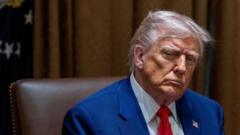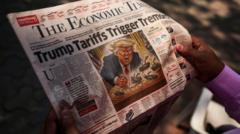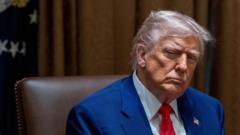As Trump's presidency puts pressure on alliances, Australia seeks alternatives in its defense strategy.
Australia Reassesses Its Defense Ties with the U.S. Amid Trump’s Unpredictability

Australia Reassesses Its Defense Ties with the U.S. Amid Trump’s Unpredictability
Australia, a longtime ally of the United States, is re-evaluating its military relationships in the wake of President Trump's controversial trade policies and treatment of allied nations.
Australia is facing a critical moment in its defense strategy as it grapples with the implications of President Trump's unpredictability on global alliances. This strategic partner dynamic has long stood firm since World War I, but recent events have prompted significant concern.
Once viewed as a “strategic marriage,” the alliance between the U.S. and Australia now feels uneasy for many Australians. Recent tariffs imposed by the Trump administration—specifically a 10 percent levy on Australian exports alongside severe duties on steel and aluminum—have raised alarms about the commitment to the partnership. Prime Minister Anthony Albanese stated such actions will impact public perception of the U.S.-Australia relationship.
Former Australian Prime Minister Malcolm Turnbull has echoed these sentiments, cautioning that the fundamental values of both nations may no longer align, saying, “We are dealing with a very different America.” This has led to a call for a “Plan B” as China’s growing military assertiveness in the region adds urgency to the conversation.
Given Australia’s vast geography and smaller population of 27 million, the nation historically relied on powerful allies for its defense. The weariness about this dependency is growing, as Australians consider what a more uncertain international landscape, driven by U.S. policies, means for their security future.























